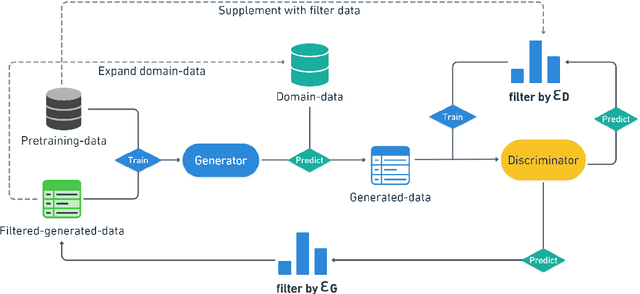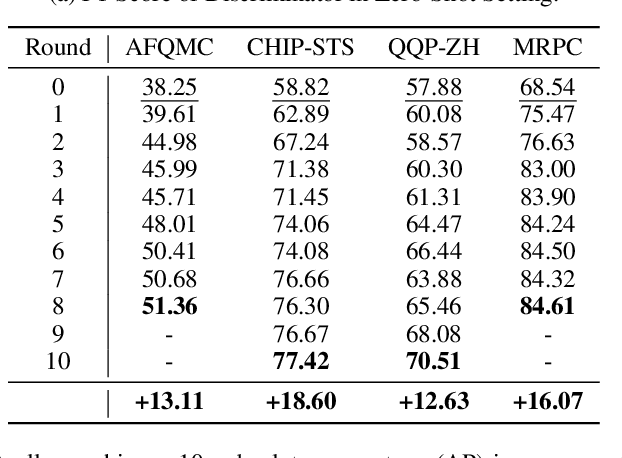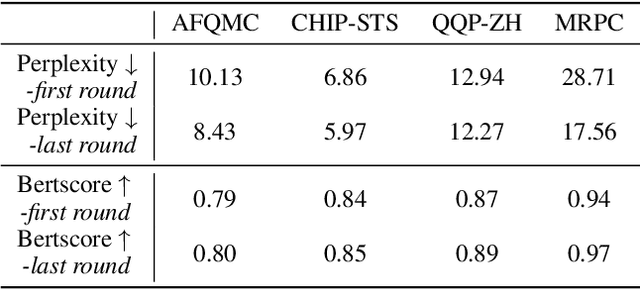Self-Consistent Learning: Cooperation between Generators and Discriminators
Paper and Code
Mar 26, 2023



Using generated data to improve the performance of downstream discriminative models has recently gained popularity due to the great development of pre-trained language models. In most previous studies, generative models and discriminative models are trained separately and thus could not adapt to any changes in each other. As a result, the generated samples can easily deviate from the real data distribution, while the improvement of the discriminative model quickly reaches saturation. Generative adversarial networks (GANs) train generative models via an adversarial process with discriminative models to achieve joint training. However, the training of standard GANs is notoriously unstable and often falls short of convergence. In this paper, to address these issues, we propose a $\textit{self-consistent learning}$ framework, in which a discriminator and a generator are cooperatively trained in a closed-loop form. The discriminator and the generator enhance each other during multiple rounds of alternating training until a scoring consensus is reached. This framework proves to be easy to train and free from instabilities such as mode collapse and non-convergence. Extensive experiments on sentence semantic matching demonstrate the effectiveness of the proposed framework: the discriminator achieves 10+ AP of improvement on the zero-shot setting and new state-of-the-art performance on the full-data setting.
 Add to Chrome
Add to Chrome Add to Firefox
Add to Firefox Add to Edge
Add to Edge